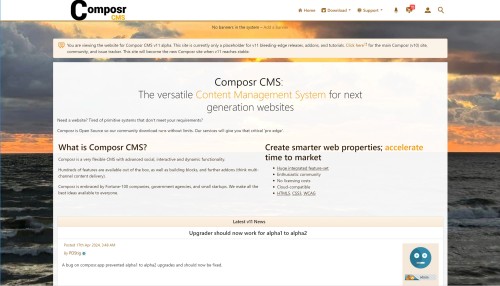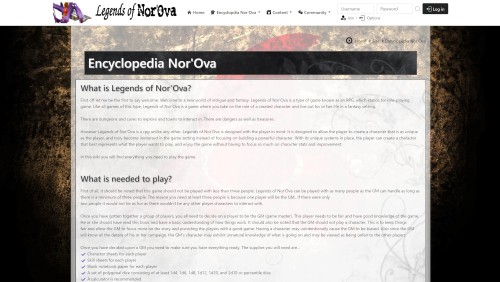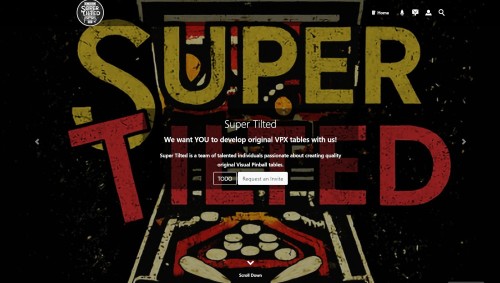Featured Sites: A-Z Index
H
Newest 10 Entries
| Question | How do I restore my Composr website from a backup? |
|---|---|
| Answer | Composr backups come as .tar or .tar.gz files. Extract the archive using an extraction program like 7-zip or your web hosting control panel. To restore a full backup:
To restore incremental backups:
|
| Question | What alternative backup strategies are available? |
|---|---|
| Answer | Many web hosting control panels include built-in backup features that operate at the system level, often offering higher reliability than web-based scripts. Ensure you back up both files and the database. For database backups, you can use tools like phpMyAdmin, which allows you to export your database as a .sql file. |
| Question | How do I create a backup of my Composr website? |
|---|---|
| Answer | Composr offers a built-in backup addon accessible from Admin Zone > Tools > Backups. You can choose between full, incremental, and database-only backups.
The addon allows scheduled backups or manual backup generation. It is recommended to download backups to a location outside your web server for better security. Note: The Composr backup addon is limited by server-side PHP capabilities and might not always be reliable. Consider using alternative backup strategies offered by your web hosting control panel for increased reliability. |
| Question | Why are backups necessary for my Composr website? |
|---|---|
| Answer | Disasters like hard disk failures, data corruption, and unexpected errors can happen at any time. A good backup strategy helps you recover your website and its data in case of such events. Backups can also help you roll back to a previous state if needed, such as after a failed upgrade or accidental changes. |
| Question | How can I control the privacy of member profile fields? |
|---|---|
| Answer | You can control the privacy of member profile fields through the "Member privacy controls" configuration option. If you enable the "Extended privacy option control", you can fine-tune visibility settings for each field. Otherwise, you can set simple access levels (e.g., not at all, to members, to friends, to everyone) for each field. |
| Question | What is the difference between a Composr member and an author? |
|---|---|
| Answer | A member is someone who has created an account on your Composr website and can log in. They have a unique member ID and username, and can interact with the site's features. An author is someone who creates content for the site. They may or may not be a member. For example, you might have an author who submits articles via email but never actually visits or joins the website. |
| Question | What advanced techniques are available for dealing with persistent spammers who repeatedly create new accounts? |
|---|---|
| Answer | Composr's advanced banning features target sophisticated human spammers. Automatic bans can be configured to block users based on specific strings in their posts, while reasoned bans display customized messages to banned users, potentially deterring them. These measures, coupled with the ability to investigate users via IP address analysis, offer robust tools for managing persistent threats. You can configure advanced banning under Admin Zone > Security > Configure advanced banning. |
| Question | How does Composr handle user banning and what options are available? |
|---|---|
| Answer | Composr offers various banning mechanisms. You can ban members by editing their accounts (ban member tick box), preventing logins while still allowing guest access. IP address banning blocks access from specific IP addresses or ranges (Admin Zone > Security > Members > Investigate user to see their IP addresses and flag certain ones for banning). You can also restrict member submissions, or you can effectively "suspend" users by assigning them to a usergroup with minimal privileges (e.g. probation). |
| Question | What is the "Warn Member" form and how can I use it to handle rule violations? |
|---|---|
| Answer | The "Warn Member" form provides a centralized interface for addressing user misconduct. You can issue formal or off-the-book warnings, apply punitive actions like IP bans, usergroup changes, or probation, and even delete content or charge points. This form allows you to document reasons for actions, improving transparency and consistency in moderation. This tool can be accessed on a member's profile as staff, under Audit > Warn member. You can also review their warnings history on their "Standing" tab. |
| Question | How does Composr track user activity? |
|---|---|
| Answer | Composr logs IP addresses for various actions like guest posting, page views, and content submissions. This data helps identify potential spammers and track user behavior. The "Investigate user" module provides tools to analyze IP addresses and gather additional information about suspicious activity. |
Top 10 Entries
| Question | What is the Composr Member System? |
|---|---|
| Answer | The Composr Member System is the system used by the Conversr forum software to manage user accounts and information. This includes usernames, passwords, profile information, and usergroups. It also handles user registration, login, and account management. For websites not using Conversr, the member system of the third-party forum software would be used. |
| Question | Can I Use Composr Galleries to Publish Podcasts? |
|---|---|
| Answer | Yes, Composr supports creating podcasts from galleries. The podcast URL follows this format: http://yourbaseurl/backend.php?mode=galleries&select=galleryname&type=rss&itunes=1. Replace yourbaseurl and galleryname accordingly. This URL can be used to subscribe to the podcast in iTunes or other podcast applications. |
| Question | How Do Gallery Slide-shows Work? |
|---|---|
| Answer | When viewing an image or video in a gallery, visitors can initiate a slide-show that automatically cycles through subsequent entries. The slide-show can be paused with a click or keypress. The default slide-show speed can be adjusted by modifying the GALLERY_ENTRY_SCREEN.tpl template. |
| Question | What are Watermarks and How Do They Work? |
|---|---|
| Answer | Watermarks are semi-transparent images overlaid on gallery images to mark their origin or deter unauthorized use. When you add or edit a gallery, you can choose to apply watermarks to the corners of images. Watermarking applies permanently to the uploaded image. Composr uses a reverse tree structure for watermarks: if a sub-gallery doesn't have a watermark defined, it inherits the watermark from its parent gallery. |
| Question | Can Members Create Their Own Personal Galleries? |
|---|---|
| Answer | Yes, members with the "have personal galleries" permission can create their own galleries. These personal galleries are displayed under designated "Personal category container" galleries. They also show up in a tab on the member's profile. Members can only add content to their own galleries unless they have the "Submit to categories belonging to other members" permission. |
| Question | What are Rep-Images and How Do I Set Them? |
|---|---|
| Answer | Rep-images, short for "representative images," are thumbnails that represent a gallery when it's displayed within a list of galleries. They offer a visual preview of the gallery's contents. You can set a rep-image when adding or editing a gallery, or when adding an image to a gallery. |
| Question | How Do I Import Images in bulk into a Gallery? |
|---|---|
| Answer | You can import images in bulk using a CSV file. The file should be named descriptions.csv and placed in the uploads/galleries directory. The first column should contain filenames (without the path), and the second column should contain descriptions. The filenames should correspond to images also located in the uploads/galleries directory. Composr will automatically match the descriptions to the images during import. |
| Question | What Image and Video Formats are Supported? |
|---|---|
| Answer | Images:
Videos:
Other formats, while they may work, are generally discouraged due to compatibility issues and lack of consistent addon or browser support. |
| Question | What are Composr Galleries? |
|---|---|
| Answer | Composr Galleries are a system for storing, organizing, and displaying images and videos. They function like categories, allowing you to group related media together. Galleries can be structured hierarchically, with sub-galleries nested under parent galleries, similar to a folder system. Each gallery has settings that control its appearance and behavior. |
| Question | How are forums structured in Composr? |
|---|---|
| Answer | Composr forums are organized hierarchically:
|







